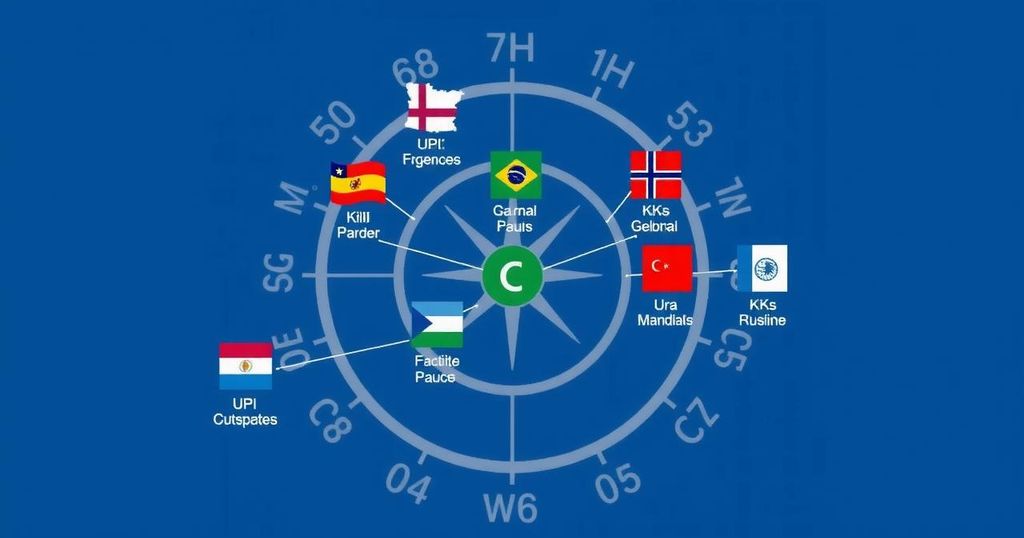Addressing the Abuse of INTERPOL Red Notices Against Journalists
This article discusses the ongoing misuse of INTERPOL’s Red Notices by member countries, notably Turkey and Egypt, targeting journalists. It outlines several reform options for INTERPOL to prevent further abuses, including stricter criteria for Red Notices and enhanced support for affected individuals. Acknowledging that while complete eradication of these issues may be difficult, concerted reform efforts can fortify INTERPOL’s integrity and support freedom of expression.
In recent analyses, it has come to light that several INTERPOL member nations have, consistent with historical patterns, been exploiting the organization’s mechanisms—specifically, Red Notices—to pursue journalists and suppress dissenting voices. Notably, Turkey and Egypt have engaged in this malpractice against journalists, particularly targeting individuals known for their integrity and commitment to factual reporting. Instances of such misapplication are not isolated; they underscore a troubling trend of utilizing international frameworks for political retaliation. Nevertheless, INTERPOL has demonstrated an ability to recognize and rebuff some illegitimate requests from member states, including those from Egypt, as documented by the RNLJ. This current discussion seeks to evaluate possible reforms INTERPOL might consider to address this abuse moving forward. Each incident of misuse engenders a climate of fear among journalists and proponents of free speech. Although completely eradicating such abuses may be a formidable challenge, INTERPOL can make significant strides by: – Establishing more stringent criteria for the issuance and review of Red Notices to prevent their use in political vendettas against journalists. – Enhancing scrutiny of requests specifically originating from member states with documented histories of abuse. – Creating a dedicated unit within the Commission for the Control of INTERPOL’s Files (CCF) that provides support to victims of abusive Red Notices, ensuring they have access to specialized guidance for rectifying inaccuracies in the data that pertain to them. – Partnering with respected international media organizations and press freedom advocacy groups, such as the Committee to Protect Journalists, to assist in the evaluation process of notice requests targeting journalists. – Increasing transparency by publicly disclosing the volume of Red Notices as well as the proportion deemed as abusive. – Implementing repercussions, such as restricted access to INTERPOL databases, against nations that knowingly exploit the system. INTERPOL has previously initiated reforms that yielded positive outcomes, and it is imperative that the organization continues to evolve its practices to uphold its credibility and significance in the global arena. The discourse surrounding this matter is open to all perspectives and suggestions.
The misuse of INTERPOL by its member countries has become a significant concern, especially regarding the issuance of Red Notices against journalists and dissenters. This phenomenon is not merely a recent development but part of an ongoing pattern where nations misappropriate international legal tools to suppress criticism and silence credible voices in the media. As reported, Turkey and Egypt stand out for their relentless pursuit of Red Notices against journalists, illustrating the urgent need for reform in how INTERPOL assesses and responds to such requests. This backdrop of political misuse necessitates a reevaluation of INTERPOL’s oversight mechanisms to protect freedom of expression and journalistic integrity across borders.
To summarize, the abuse of INTERPOL’s Red Notices by member states is an acute issue that undermines the principles of justice and free speech. By implementing a series of proposed reforms—enhanced scrutiny of requests, greater transparency, the establishment of dedicated support for victims, and collaboration with press safeguarding organizations—INTERPOL can significantly mitigate the risks that journalists face globally. Sustaining the organization’s integrity through these reforms is essential to foster a safer environment for journalists and uphold the values of free press.
Original Source: www.jdsupra.com




Post Comment